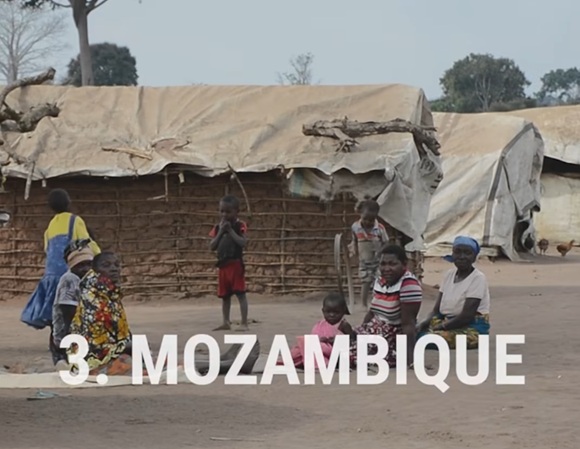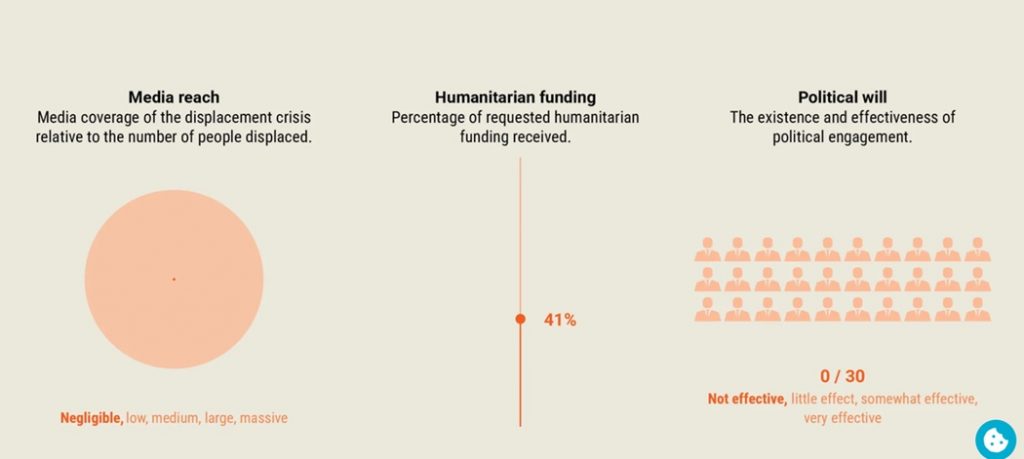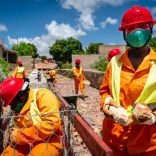Maputo hosts workshop on gender equity statistics
Mozambique: The world’s third most neglected displacement crisis in 2024- NRC

Screen grab: NRC - Norwegian Refugee Council
Mozambique has for the first time appeared on the list of the ten countries with the most neglected displacement crises, compiled annually by the Norwegian Refugee Council (NRC). Mozambique enters the list in third place, after Cameroon and Ethiopia, the NRC having identified 600,000 people affected by violence and natural disasters in the country in 2024.
We often talk about neglected crises. But what does that really mean?https://t.co/zTbFVGudSu
— Norwegian Refugee Council (@NRC_Norway) May 31, 2025
In 2024, Mozambique found itself navigating a perfect storm of armed conflict, political turmoil and climate-driven disaster. These overlapping shocks created a volatile and deeply complex humanitarian emergency, making Mozambique one of the world’s most neglected displacement crises for the first time,” reads the NRC report released yesterday.
The report highlights that armed violence in the northern province of Cabo Delgado continued to “continued to uproot communities, while tensions flared nationwide following disputed presidential elections in October”, followed a few weeks later by Tropical Cyclone Chido, “wreaking havoc on already fragile infrastructure and pushing people deeper into crisis”.
“By the end of the year, almost 600,000 people were displaced by a combination of violence and disaster. Access to food was a major concern, and 2.8 million faced acute food insecurity between April and September,” the document highlights.
Despite “mounting needs”, the 2024 NRC report states that humanitarian response struggled to “gain traction to mobilise support in Mozambique and that “funding fell drastically short”.
“The 2024 Humanitarian Response Plan was only 41% funded – its lowest ever level. Food assistance was particularly hard hit, covering just 13% of needs in Cabo Delgado,” the document reads, adding that early figures for 2025 indicate “another year of unmet needs”.
It also points out that “the funding secured so far has been extremely limited, signalling a worrying trend and potentially exacerbating the crisis”.

“Mozambique’s crisis has unfolded largely outside the spotlight. Limited media coverage, compounded by competing global crises, has diverted attention and resources. As the world looks elsewhere, Mozambique’s multifaceted crisis is becoming increasingly invisible, and increasingly dangerous,” warns the NRC.
The Norwegian Refugee Council publishes an annual report on the world’s ten most neglected displacement crises, with the aim of focusing “on the plight of people whose suffering rarely makes international headlines, who receive little or no assistance, and crises that never become the centre of attention for international diplomacy efforts”.
The 2024 list is led by triple displacement crises in Cameroon, resulting from the long armed conflict, with 3.4 million people in need of urgent support and protection, followed by Ethiopia, with 2.3 million people displaced, and then Mozambique.
“In 2024, the number of people displaced across the globe surged to double what it was ten years ago,” but at the same time, “humanitarian funding covered just half of the rising needs”, it adds.
“Shifting domestic priorities, economic uncertainty and political fatigue have led to severe cuts in support for people affected by crisis and displacement. The world is in transition. But we must not accept this abandonment as a foregone conclusion,” the report exhorts.
🚨 10 crises. Millions neglected. Barely any headlines.
Right now, families are fleeing violence in places the world has stopped caring about.
When aid gets cut, people die. When we stay silent, we choose indifference.
Your voice can break that silence. pic.twitter.com/XQq5rwONRE
— Norwegian Refugee Council (@NRC_Norway) June 3, 2025
The Norwegian Refugee Council’s list also includes the displacement crisis in Burkina Faso, in fourth place, followed by Mali, Uganda, Iran, the Democratic Republic of Congo (DRC), Honduras and Somalia.
The NGO also warns of the growing impact of climate change on displacement, and the “financing shortage”, which has been “becoming the norm”, requiring response plans to be at least 50% funded.
“Displacement isn’t a distant crisis; it’s a shared responsibility. We must stand up and demand change,” the NRC concludes.
- You may read the full report on the Norwegian Refuge Council webpage.
The number of people displaced across the world has doubled in the last 10 years. Yet humanitarian funding has started to decline, leaving millions neglected.
Here are the world’s most neglected displacement crises ⬇️ https://t.co/KRuz39UfnQ
— Norwegian Refugee Council (@NRC_Norway) June 4, 2025












Leave a Reply
Be the First to Comment!
You must be logged in to post a comment.
You must be logged in to post a comment.